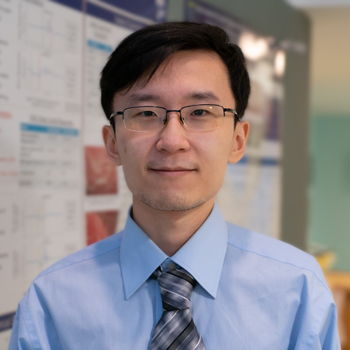We have seen a remarkable growth in smart devices and artificial intelligence in all aspects of our lives. Despite this ever-growing amount of AI around us, our environments are still far from truly intelligent. At the touch of a button, we have access to powerful AI that can easily outperform any human in complex tasks and games, like Chess and Go, yet our environments still cannot alert us to dangerous approaching vehicles, nor prepare a simple meal on a busy day, something all of us do regularly and intuitively. In this talk, I will present two lines of work that bridge the gap between AI and truly intelligent environments.

First, I will introduce my work on embedding acoustic intelligence into wearables we commonly carry, such as headphones and helmets, to create safer cities. These low-cost and long-lasting wearables leverage novel architectures that utilize a combination of physics-based models and machine learning techniques to alert pedestrians and construction workers of dangers from oncoming vehicles. These wearables ultimately act as a second pair of ears, creating a sphere of safety around us.
Second, I will present my work on generalized intelligent systems that allow us to embed intelligence more easily into all aspects of our lives or adapt to the situation at hand. I will first discuss my work on a generalized selective audio filtering architecture, for resource-constrained systems, that allows us to embed audio intelligence in diverse applications and platforms. This architecture dynamically leverages the physics of audio and a wide range of data-driven machine learning models to allow engineers and developers to enhance and suppress custom sounds in their own specific applications. Finally, I will introduce my work on a home-centric artificial intelligence that adapts to the physical environment, its occupants, and available sensors, actuators, and devices to dynamically learn and carry out a wide range of services and tasks without the need for humans to manually specify how to carry out each task. This generalized and adaptable intelligence is a concrete step towards realizing truly intelligent and autonomous environments.
Stephen Xia is a Ph.D. candidate in the Department of Electrical Engineering at Columbia University, advised by Dr. Xiaofan (Fred) Jiang. Stephen received his B.S. in Electrical Engineering from Rice University in 2016. His research lies at the intersection between systems, embedded machine learning, and signal processing, spanning areas in mobile and embedded systems, Internet-of-Things, cyber-physical systems, artificial intelligence, and smart health. His work takes a joint physics-based and data-driven approach to realize truly intelligent and autonomous environments by embedding and dynamically utilizing compute, sensing, actuation, storage, and networking resources all around us. Stephen’s research has been highlighted by many popular media outlets, including Mashable, Fast Company, and Gizmodo, and has received various distinctions, including Best Demo Awards at ACM SenSys 2021, ACM/IEEE IPSN 2020, ACM/IEEE IoTDI 2018, and the Best Presentation Award at IEEE VNC 2018.